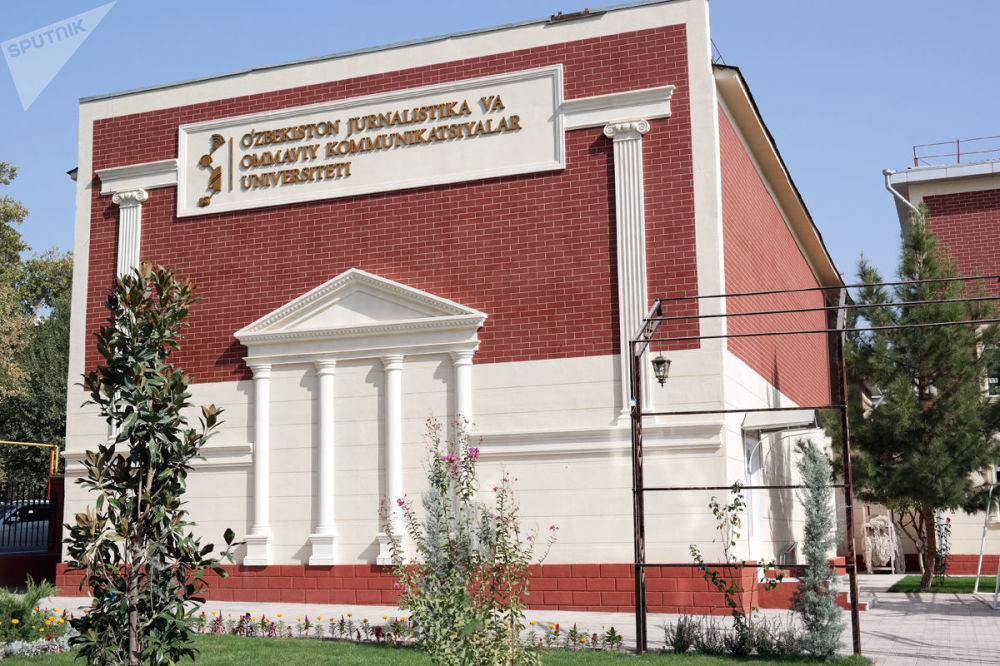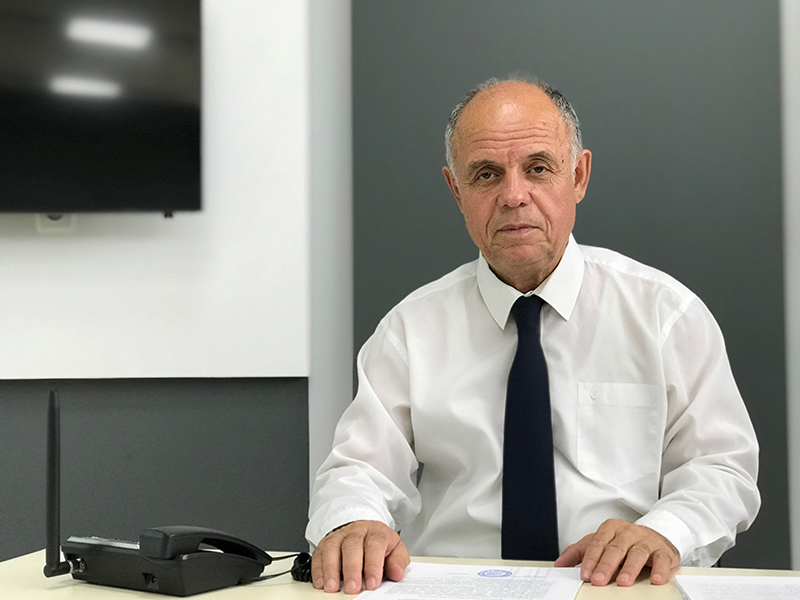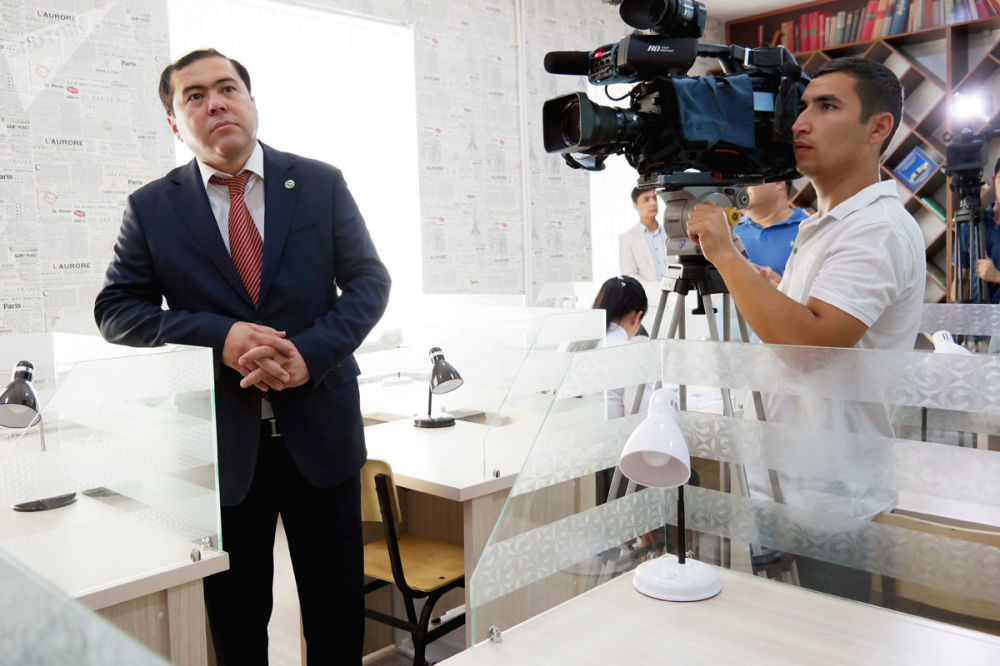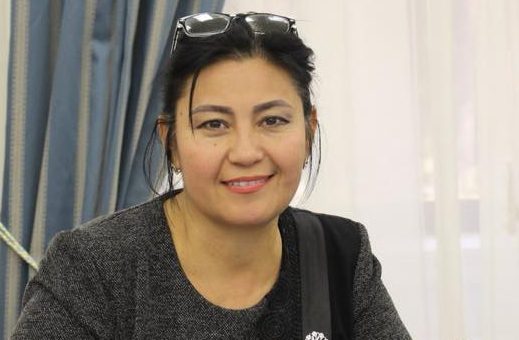According to experts, the monopoly in the preparation of future journalists of the newly created University of Journalism and Mass Communications of Uzbekistan will not have such a positive impact as deemed by the authorities.
Follow us on LinkedIn!
This year the University of Journalism and Mass Communications has appeared in Uzbekistan, which should become the only university in the country that will be preparing media workers. The departments and faculties of journalism at the national university and state university of world languages will be eliminated over the years. In 2018-19 academic year, these universities didn’t enrol new students in the major of journalism.
According to previous reports, this decision was made “to thoroughly study the peculiarities of journalism at the age of globalisation, its historical progress, current status and perspectives”. Thus, the head of state Shavkat Mirziyoyev looks to improve training of skilled staff.
The new university enrols students on the basis of tests and creative interview. The quota for the enrolment of students in eight bachelor’s degrees this year was 100 students; 675 graduates submitted documents for enrolment.
According to vice-rector of the university of journalism and communication technologies Faizullo Muminov, opening of the new university will solve the problem of training of journalists in various areas.
“Today the print media, television, radio and internet have become so advanced that it doesn’t make sense to train journalists like before,” Muminov said. “The need for specialists who can work with information is not only growing, but has become multidirectional. If existing departments are able to find new directions, I will wish them good luck. I think such new directions can and should be explored.”
Instructors and funds are needed to explore new directions, and the department of international journalism of the Uzbek state university of world languages has failed to enrol the sufficient number of first-year students this year. As a result, academic workload and disciplines have decreased, and many lecturers have been dismissed, and the remaining staff work half-days and quarter-time. The department has already liquidated a position of deputy dean, and in future the position of dean could also be eliminated due to the lack of students. Today we have second- and fourth-year undergraduate students, whose total number is 170, as well as 9 postgraduate students. All of them will earn their degrees at their relevant universities, but before that the teaching staff will have to combine jobs due to the staff reduction. No need for political science This is not the first case when departments are being liquidated at the universities of Uzbekistan. In 2015, the country stopped teaching political science at universities. The ministry of education has explained its decision by the absence of scientific methodology in teaching political science, saying its topics are duplicated with the topics of other scientific disciplines, and educational materials are based on western sources only. Among other reasons have been named the lack of national scientific heritage in the courses of political science and the non-coverage of the “Uzbek” model of development. This decision has been criticised by the expert community. But in fact preparation of political analysts at the universities of Uzbekistan stopped two years before the official order. Back in 2013, the Uzbek political analyst Farkhad Tolipov emphasised the paradox “political analysts are not trained anymore, but political science is among other compulsory humanities courses in some universities”. Dust in the eyes
The quality of preparation of journalists in Uzbekistan is very low and the new university would not solve this problem, said Darina Solod, an Uzbekistan-based journalist, chief editor of Hook.report, an alumna of the CABAR.asia’s School of Analytic Journalism. Usually, skilled staff self-develop – they join editorial staff and self-develop there or leave abroad for study under scholarships. Therefore, the new university of journalism is absolutely unjustified and unnecessary. According to her, existing departments and faculties of journalism should have been kept, and trainers from Central Asia, Europe and Russia could be invited to improve the level of training.
“In fact, there was no need for a university [of journalism]. They show off that it would be preparing the best journalists in Uzbekistan,” Solod commented. “This is not a respectable profession, it pays no money, and young people do not really want to pursue it.” “The opening of the university is another attempt to pretend that we have heavy activity here, to throw dust in the eyes. But actually I am not sure if the university led by the rector, who has been involved in many unpleasant situations this year, will prepare really worthy journalists and skilled staff,” she said. At the centre of scandals On September 12 this year, the O’zbekiston 24 TV channel released a story, in which it sharply criticised the outfits of pupils and teachers of Tashkent-based schools No. 110 and No. 50. It has caused hot discussions in social media. Many users have said that journalists don’t have a right to discuss in public the length of skirts of girls and women without their consent.
Afterwards, O’zbekiston 24 has stated that it has nothing to do with the story: the channel has only provided broadcast time, while the story has been prepared by the staff of the international press club. Its head, and also the rector of the University of Journalism and Mass Communications is Sherzod Kudratkhodzhaev.
“This is not a public humiliation of kids. We have shown the real situation at schools. If the society takes it this way, it’s their problem. Why would we hide children’s faces? We don’t want to discriminate anyone by hiding faces, they not criminals,” Kudratkhodzhaev commented. A few days later, on September 16, a video appeared on the internet, where the said rector of the University of Journalism and Mass Communications was having a dispute with an old Russian woman demanding that she speak Uzbek. In response, she said she was born in Uzbekistan and considered it her home country. Kudratkhodzhaev addressed the woman impolitely and interrupted her by shouting “Uyat! Uyat!” (“shame on you!”). “Cannot compete with itself” The decision on the creation of the University of Journalism and Mass Communications and its monopoly in media staff training raises doubts among specialists.
“If the two departments of journalism at other universities don’t start enrolment of students, the new university will firstly have the monopoly in the preparation of journalists, and secondly it will have no scientific reviewers of and opponents to newly produced training aids, resource books, textbooks, and graduation theses and master’s theses,” Nargis Kosimova, an associate professor of the department of international journalism of the Uzbek State University of World Languages, said.
According to her, now the matter under consideration is whether to resume enrolment of first-year students to journalism departments at the National University of Uzbekistan and the state university of world languages, as the only newly-established university cannot compete with itself. Fatima Muminova, a doctor of philology and professor of the University of World Economy and Diplomacy of Uzbekistan, said that preparation of journalists [in Uzbekistan] compared to other Central Asian republics differs in a variety of academic programmes, directions in majors. “For example, in Kyrgyzstan, a republic, which has a much smaller territory and less population than Uzbekistan, universities have nearly twenty journalism departments and faculties. Journalism as an information-producing industry serves as the indicator of the level of maturity of the society. Its liberalisation determines the status and image of the progressive and democratic state,” Muminova said.
However, a variety of universities that prepare journalists is not a guarantee of quality of education, Kyrgyz media expert Azamat Tynaev said. According to him, students and university graduates often complain that they don’t get broad and deep knowledge at universities. Also he describes the situation in the Kyrgyz journalism as critical but stable.
Nevertheless, Tynaev thinks that a variety of journalism departments, specialised universities, schools and private courses create a highly competitive environment because it’s difficult to prepare a qualified specialist even under a 5-year university programme. “The Uzbek model might have some things that will prove feasibility and adequacy of this decision,” Tynaev said. “But journalism is very diverse and versatile nowadays. There’s no single view on its mission, standards, formats, so I can hardly understand how one centralised university can accommodate so many things. I would rather encourage as many different, alternative concepts as possible that are educational not only in form, but also in content.”This article was prepared as part of the Giving Voice, Driving Change – from the Borderland to the Steppes Project implemented with the financial support of the Foreign Ministry of Norway. The opinions expressed in the article do not reflect the position of the editorial or donor.

